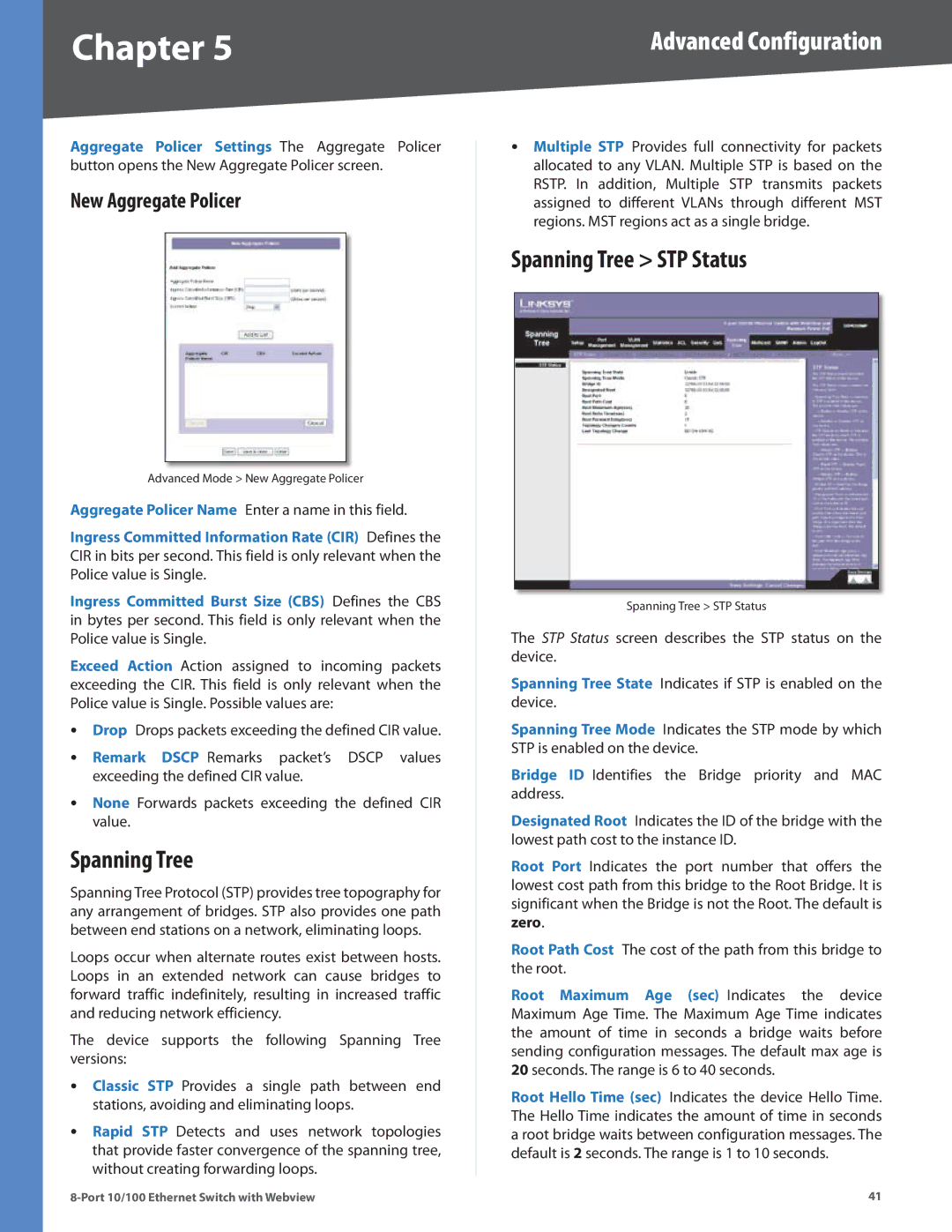
Chapter 5 | Advanced Configuration |
Aggregate Policer Settings The Aggregate Policer button opens the New Aggregate Policer screen.
New Aggregate Policer
Advanced Mode > New Aggregate Policer
Aggregate Policer Name Enter a name in this field.
Ingress Committed Information Rate (CIR) Defines the CIR in bits per second. This field is only relevant when the Police value is Single.
Ingress Committed Burst Size (CBS) Defines the CBS in bytes per second. This field is only relevant when the Police value is Single.
Exceed Action Action assigned to incoming packets exceeding the CIR. This field is only relevant when the Police value is Single. Possible values are:
•• Drop Drops packets exceeding the defined CIR value.
•• Remark DSCP Remarks packet’s DSCP values exceeding the defined CIR value.
•• None Forwards packets exceeding the defined CIR value.
Spanning Tree
Spanning Tree Protocol (STP) provides tree topography for any arrangement of bridges. STP also provides one path between end stations on a network, eliminating loops.
Loops occur when alternate routes exist between hosts. Loops in an extended network can cause bridges to forward traffic indefinitely, resulting in increased traffic and reducing network efficiency.
The device supports the following Spanning Tree versions:
•• Classic STP Provides a single path between end stations, avoiding and eliminating loops.
•• Rapid STP Detects and uses network topologies that provide faster convergence of the spanning tree, without creating forwarding loops.
•• Multiple STP Provides full connectivity for packets allocated to any VLAN. Multiple STP is based on the RSTP. In addition, Multiple STP transmits packets assigned to different VLANs through different MST regions. MST regions act as a single bridge.
Spanning Tree > STP Status
Spanning Tree > STP Status
The STP Status screen describes the STP status on the device.
Spanning Tree State Indicates if STP is enabled on the device.
Spanning Tree Mode Indicates the STP mode by which STP is enabled on the device.
Bridge ID Identifies the Bridge priority and MAC address.
Designated Root Indicates the ID of the bridge with the lowest path cost to the instance ID.
Root Port Indicates the port number that offers the lowest cost path from this bridge to the Root Bridge. It is significant when the Bridge is not the Root. The default is zero.
Root Path Cost The cost of the path from this bridge to the root.
Root Maximum Age (sec) Indicates the device Maximum Age Time. The Maximum Age Time indicates the amount of time in seconds a bridge waits before sending configuration messages. The default max age is 20 seconds. The range is 6 to 40 seconds.
Root Hello Time (sec) Indicates the device Hello Time. The Hello Time indicates the amount of time in seconds a root bridge waits between configuration messages. The default is 2 seconds. The range is 1 to 10 seconds.
41 |
